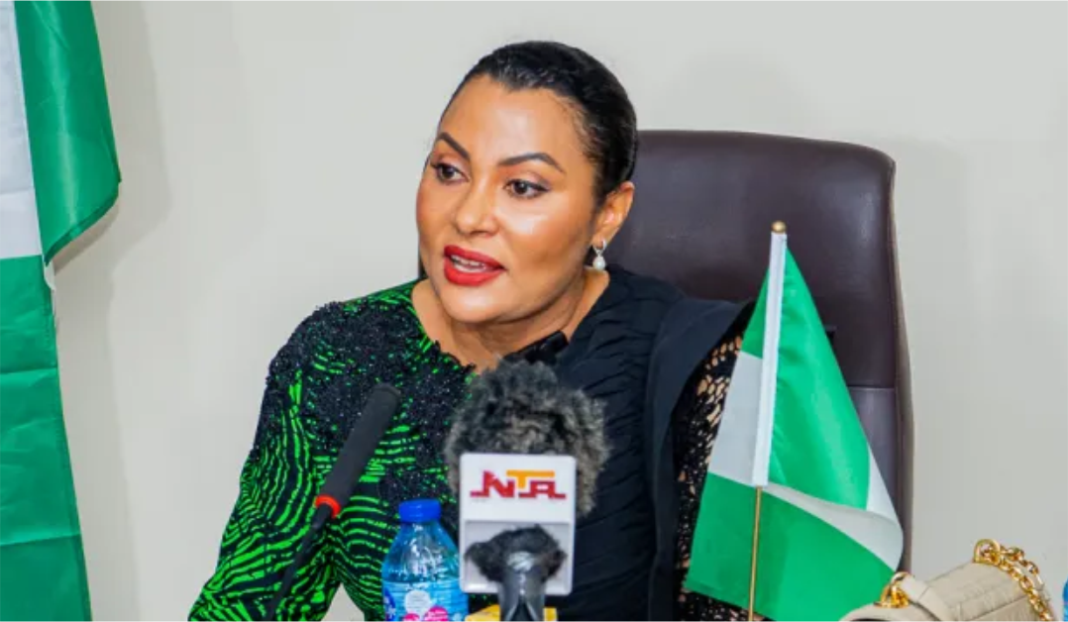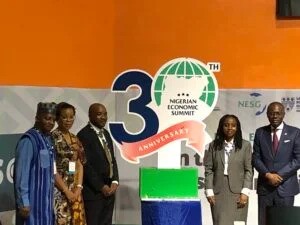News
Projects concession to raise N180bn revenue – ICRC
The Infrastructure Concession Regulatory Commission (ICRC), has said that the approval of the concessioning of its two projects by the Federal Executive Council (FEC) would attract N180 billion revenue to Nigeria.
A statement issued in Abuja on Sunday by Ifeanyi Nwoko, Acting Head, Media and Publicity, ICRC), said the projects included the Cassava Bio-mass and Bio-ethanol Value Chain and National Fire Detection And Alarm System (NAFDAS).
Nwoko said the concessioning was to create wealth, reduce poverty, improve food security and nutrition, provide jobs and renewable energy, and reduce carbon footprint.
“While the NAFDAS project will generate a total of N75 billion in the 15-year concession period, the cassava bio-ethanol value chain will generate a total revenue of N105 billion within the five-year concession period.
“The cassava bio-ethanol value chain, which will be done on a pilot phase, aims to build a Bio-technology Industrial Park on a 20-hectare plot across 20 universities, academia and research and development institutes.
“In the pilot phase, 5,000 special hybrid cassava (TME 419) stems will be planted per hectare, (totalling) 100,000 stems for the 20 hectares,” he said.
In addition, he said the project would supply organic fertiliser, boosters, conditioners, pre and post-emergent herbicides, pesticides, insecticides, fungicides, and knapsack sprayers.
“The project also seeks to double cassava production from the current 62 million tons to an output of no fewer than 120 million tons.
“With improved tropical agro-ecology, bio-technology, intense mechanisation, and effective partnership resource mobilisation, Nigeria can double output to 120 million metric tons in five years,” he said.
Nwoko said the key goal of the cassava-bioethanol pilot project was to demonstrate the efficacy of a private sector-led approach in promoting investment in renewable biomass and creating wealth.
“Also in providing jobs, reducing poverty, improving food security and nutrition, providing renewable energy and reducing carbon footprint,” he said.
Nwoko said the project was proposed to be financed with a grant from the Federal Government and Concessionaire investment totalling N11.9 billion.
The ICRC spokesman said the revenue stream presented by the project includes sales of cassava stem, cassava flour, garri, starch, and Bio-ethanol.
“Total revenue for the five-year concession period is N105,610,000,000,” he said.
He said that the NAFDAS project would provide fire mitigation hardwares, softwares, and equipments that would be linked to a cloud network.
Nwoko said the project would be supervised by the Federal Fire Service through a private entity.
“Through the use of this technology, call, and response time in fire incidents will be automated thus drastically reducing avoidable incidents,” he said.
Nwoko said more lives and properties would be saved, and generally ensure efficient fire prevention, detection and management.
“This means that smoke alarms and other fire detection hardware will be linked to a server which will alert the system when the user is in distress without them having to call for help,” he said.
He said the project would begin in seven states on pilot basis, before rolling it out to all states across the country.
Nwoko said the total cost of the project was N3.5 billion, while the government targets to generate N75 billion within 15 years of the concession.
“Share of revenue to the government was projected as 40 per cent of subscription revenue totaling N17,262,850,871, an average of N1,150,856,724 over the 15 years proposed concession period.”
He added that the revenue stream included margin on installations and annual subscription fee from users.
Nwoko said both projects would be executed under the regulatory guidance of ICRC with the revenue shared between government and the concessionaire at a ratio decided in the concession agreement.
News
Application deadline for management of Nigeria’s $10bn Diaspora Fund extended

The Nigerian federal government has shifted the application deadline for companies interested in managing the $10 billion Diaspora Fund.
Minister of the Federal Ministry of Industry, Trade and Investment, Doris Uzoka-Anite, disclosed this in a circular on Thursday in Abuja.
Accordingly, the deadline for May 6 has been shifted to May 13, 2024.
The minister urged prospective applicants to utilise the extra time to complete their submissions, ensuring they are thorough and competitive.
She stressed that the extension is designed to allow stakeholders additional time to adequately prepare their applications following the guidelines established for the fund.
“The Federal Ministry of Industry, Trade, and Investment wishes to inform all interested parties that the deadline for the submission of Expressions of Interest (EOI) for the Nigeria Diaspora Fund has been extended.
“The new submission deadline is May 13, 2024. This extension is intended to accommodate stakeholders who require more time to prepare their applications by the guidelines provided for the $10 billion Nigeria Diaspora Fund,” she stated.
News
Sanwo-Olu, NESG harp on PPP for economic growth


Gov. Babajide Sanwo-Olu of Lagos State has emphasised the role of public-private sector partnerships in driving accelerated sustainable economic growth in Nigeria.
He made the remark at the Nigerian Economic Summit Group (NESG) Public Lecture and Founders’ Forum held at the Lagos Business School on Thursday.
The event, which marked the official launch of the 30th anniversary of the Nigerian Economic Summit (NES) has the theme: “In the National Interest: Reflecting on the Past, Reimagining the Future.”
Sanwo-Olu said it was imperative that the public sector improved on its synergy with various actors pursuing a collective agenda of service for the citizens.
The governor highlighted the significant role the NESG plays in bringing together public and private sector leaders in the country in an ongoing dialogue to shape, influence and create a thriving competitive and successful economy.
“We’re not where we should be and we must continue to set goals to inspire ourselves to do better as a nation
“We may not always achieve our targets for our vision timelines, but that should not be an excuse for not trying,” he said.
He commended the NESG for its various interventions such as the flagship annual summit, roundtable and sectorial policy commissions, technical support work and policy innovation centre.
He, however, urged NESG to explore ways of deepening linkage between policy work and public consciousness that allows engagement with the citizenry.
Delivering the lecture, Mrs Ifueko Omoigui-Okauru, Managing Partner, Compliance Professionals PLC, said that while there had been significant economic changes, more needed to be done to ensure accelerated economic growth.
Omoigui-Okauru said that there was need to build inclusive policies that reflect the realities of the nation rather than imposing replicas of other countries.
“In 30 years, we may have made some progress, but we can’t say we have radically transformed Nigeria.
“As we reflect on the NESG, there’s still a lot to be done in bridging the rural-urban divide and have an inclusive agenda.
“We see our journey as work in progress. We need to determine the parameters that would drive our success and put policies in place to move us in the direction where we need to be.
“It is important for us to move away from self interest, think of ways to use technology and other frameworks to collectively achieve the Nigeria of our dreams,” she said.
Earlier in his opening remarks, Mr Niyi Yusuf, Chairman, NESG, said the 30th Summit reaffirmed the essentiality of public-private partnerships in tackling complex economic realities.
Yusuf, however, said that the journey to embracing market mechanisms has not been without its challenges.
He reiterated unwavering commitment in driving reforms through rigorous research, economic and social programmes, and inclusive summits, all aimed at shaping the socio-economic development of our nation.
“Thirty years ago, at a critical juncture in our nation’s history, the NES was born out of a necessity when the winds of economic challenges blew fiercely, necessitating a platform for robust public-private dialogue.
“Since our inaugural summit in 1993, the NES has been a progressive economic discourse rooted deeply in collaborative efforts between government leaders and private sector visionaries.
“Each Summit has crafted policies and strategies essential for removing barriers to competitiveness, growth, and inclusive development.
“Therefore, in commemorating this 30th anniversary, it is essential to assess and discuss the role of this public-private dialogue platform in Nigeria’s socio-economic landscape to provide us insights for future engagements,” he said.
The chairman assured collaborative efforts with the three arms of federal and subnational governments and private sector communities to propel Nigeria towards a more resilient, inclusive and prosperous future.
Dr Pascal Dozie, Chairman, NESG Advisory Board, listed political, economic, education and environment sectors as pathways to reimagining Nigeria’s future
Dozie, also pioneer Chairman of NESG Board of Directors, was represented by Mr Frank Aigbogun, Chief Executive Officer of BusinessDay.
He charged NESG to adopt new strategies in providing collaborative leadership in seeking answers to the following crucial questions.
“How do we strengthen democratic institutions and rule of law, foster culture of inclusiveness and representation?
“How do we promote transparency and accountability in governance and inculcate the culture of consequences for bad behaviour in every sphere of life?
“In economic reimagining, how do we diversify Nigeria’s economy, reduce dependence on oil, foster a business friendly environment and develop the much needed infrastructure base in a coordinated nationwide approach?
“How do we repurpose the educational system to focus on science, technology, engineering and mathematics, encourage technology entrepreneurship and innovation and address unemployment?
“For the environment, how can we develop sustainable agriculture and food security, promote sustainable practices, renewable energy and eco tourism?
“It is imperative that the NESG community leads from the front in not only providing actionable answers to these questions but also making sacrifices to ensure they are implemented,” he said.
Similarly, Chief Executive Officer of NESG, Dr Tayo Aduloju, said that strong institutions, political will, accountability by all stakeholders and the willingness for the government to allow private sector to drive growth were factors needed for a successful economic development.
“The challenge for us today is how to drive the country forward over the next 30 years in a way that is not just growth but growth that creates jobs and opportunities for everyone and no one is left behind.
“We are dealing with a country that is going through macro-economic volatility and instability.
“So, the lessons here at the forum are deep reflections of what should change in our approach, a stronger priority on execution, a deeper commitment on accountability of government systems to deliver and how economic barometers impact the ordinary man on the street.
“Our resilience to hold government accountable, to keep insisting that there must be an economy that works for all Nigerians, rule of law, an environment in which free enterprise is practiced, is what we must continue to fight for,” he added.
News
NCS FoU Zone ‘B’ Nabs Fake Customs Officer


-
capital market2 years ago
Rt.briscoe, FBNH, Others halts negative performance of stock market
-
Finance3 months ago
Court orders Sen. Victor Umeh to repay N136m bank debt to AMCON
-



 Abuja Update2 months ago
Abuja Update2 months agoUNDP, FG partnership needed to achieve inclusion, equity- Minister
-
Abuja Update1 month ago
Banks drive stock market performance with N147bn gain
-



 Business1 week ago
Business1 week agoTingo Group unveils Tingo Electric, Tingo Cola drink at Lagos launch
-



 Health2 weeks ago
Health2 weeks agoCapacity training will reduce migration of health workers- NPHCDA
-
News4 months ago
Oil thieves sponsoring malicious media campaign against Navy – Spokesman
-



 Infotech1 month ago
Infotech1 month agoWorld Backup Day: NITDA urges Nigerians to ensure backup of data




